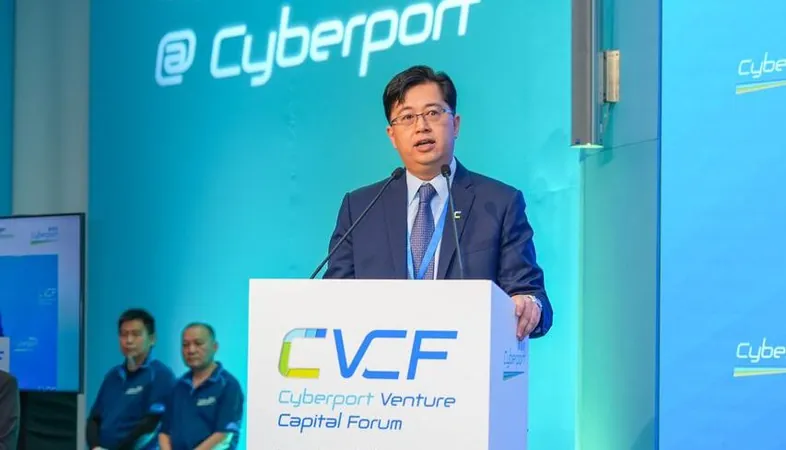
Exclusive Insights from Eric Chan: Navigating Hong Kong's Path to Tech Hub Status
2024-11-27
Author: Chun
Hong Kong: A Unique Cornerstone of Collaboration
"Hong Kong is a unique market, yet it's crucial for us to foster partnerships beyond our borders," Chan asserted. With a population of merely 7 million, he noted that for our budding entrepreneurs to achieve unicorn status, they must expand their operations into larger markets. "We are now focusing our efforts on building solid relationships within ASEAN countries and even the Middle East,” he remarked.
Paving the Way for Startups
Chan articulated the role of Cyberport in empowering startups. With 21 years of experience, Cyberport has supported over 1,300 incubatees, nurturing eight unicorns within its community. He highlighted a collaborative partnership with Malaysia's Digital Economy Corporation (MDEC), which will see 16 startups traveling to Malaysia to renew a Memorandum of Understanding to facilitate their entry into this burgeoning market.
Investment Trends and Future Aspirations
As part of the Cyberport Investors Network, Chan believes connecting startups with the right investors is pivotal for success. "Funding is essential, and we regularly host investor-matching sessions to ensure our startups secure the investments they need as they scale." The Cyberport Macro Fund, launched in 2016, aims to significantly endorse quality startups. Historically, for every dollar invested, the fund has attracted an additional $9 to $10 in co-investment. Chan elaborated, "When we contribute a size-able investment, it tends to escalate interest from other investors, offering our startups the financial backing they need."
Bridging Markets in Southeast Asia and the Middle East
With a keen eye on Southeast Asia, Chan noted considerable opportunities for Hong Kong startups in countries like Malaysia and Indonesia. "There’s a growing demand for smart city solutions," he explained. "We aim to both export our innovations and invite international providers to explore business opportunities in Hong Kong." In line with supporting the Belt and Road Initiative, Cyberport has also forged inroads into the Middle East. "Our participation at the LEAP Conference in Riyadh has opened doors. We are eager to explore partnerships with burgeoning markets in UAE and Saudi Arabia," said Chan.
Impact of the Greater Bay Area Development
The Greater Bay Area (GBA) initiative is seen as a strategic advantage for Hong Kong’s tech ecosystem. "This cooperative approach aims to transform our region into a competitive global entity, akin to the San Francisco Bay Area," Chan emphasized.
Facing Competition from Singapore
While acknowledging Singapore as a competitor, Chan is clear about Hong Kong's unique strengths. "We have the benefit of the Chinese market's vast resources, while Singapore focuses more on Southeast Asia. We need to learn from Singapore's effective marketing strategies but simultaneously highlight our distinct advantages of connecting with China." Looking to the future, Chan’s vision for Cyberport and its ecosystem involves harnessing the emerging sectors of e-sports and gaming, fostering innovations in fintech, and driving forward artificial intelligence and Web3 initiatives to ensure that Hong Kong not only competes but excels on the global tech stage. With Hong Kong positioned as a collaborative hub for technology development and innovation, the potential for growth appears boundless. Will this be the year that Hong Kong truly secures its status as a leading tech hub in Asia? Stay tuned!



 Brasil (PT)
Brasil (PT)
 Canada (EN)
Canada (EN)
 Chile (ES)
Chile (ES)
 España (ES)
España (ES)
 France (FR)
France (FR)
 Hong Kong (EN)
Hong Kong (EN)
 Italia (IT)
Italia (IT)
 日本 (JA)
日本 (JA)
 Magyarország (HU)
Magyarország (HU)
 Norge (NO)
Norge (NO)
 Polska (PL)
Polska (PL)
 Schweiz (DE)
Schweiz (DE)
 Singapore (EN)
Singapore (EN)
 Sverige (SV)
Sverige (SV)
 Suomi (FI)
Suomi (FI)
 Türkiye (TR)
Türkiye (TR)